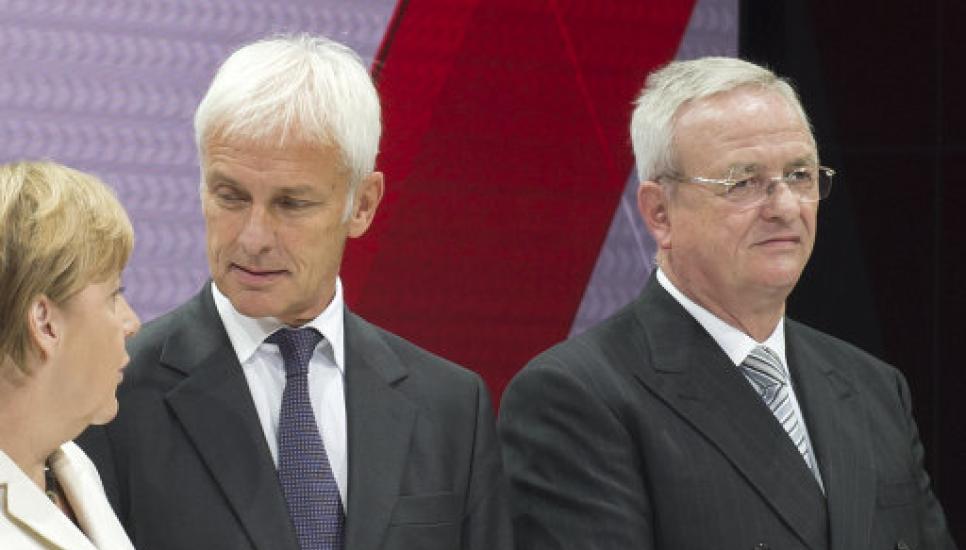Mueller set to become the new non-family CEO at Volkswagen

Martin Winterkorn may have survived an attempted leadership coup in April, which pitted third-generation chairman against non-family executive, but the Volkswagen CEO did not prove so resilient in the face of the corporate scandal currently rocking the carmaker.
Today the family business is reportedly set to announce that Matthias Mueller, who current heads the company's luxury Porsche brand, will take over the entire group.
Winterkorn had worked at Volkswagen since 1993, serving as CEO for the last eight years.
In spite of the scandal, Volkswagen's executive committee praised Winterkorn, who is reported to leave with a €28.5 million pension, for his “towering contributions” to the company.
Mueller was reportedly chairman Ferdinand Piech's first choice to lead the family business when he unsuccessfully tried to oust Winterkorn in April. But board members and Porsche family members backed the incumbent instead, and Piech was forced to step down from the helm.
Volkswagen's admission of software rigging, however, is the worst scandal in the company's 78-year history.
The company has admitted it had tampered with software in its diesel vehicles so they falsely appeared to meet emissions standards. Testing by the US Environmental Protection Agency had revealed emissions from many diesel models differed in testing conditions compared to real driving situations.
The models implicated include the Beetle, Golf, Passat and Jetta, as well as the Audi A3.
A highly sophisticated algorithm detected when the car was undergoing official emissions testing, and adjusted emission control devices accordingly so that the vehicles could meet standards.
The 11 million vehicles that have so far been implicated were emitting 40 times the amount of nitrogen oxides currently allowed under US regulations, and the company could face a fine up to $18 billion for installing the illegal “defeat device”.
While it is difficult to calculate the human cost, each year 3.7 million people die from the type of pollutants that the implicated vehicles emitted, according to the World Health Organization.
The pollutants are linked to asthma attacks, respiratory illnesses, and cardiovascular problems, with the elderly, children and people with pre-existing respiratory problems particularly at risk.
A joint investigation by the majority of US states will examine Volkswagen under consumer-protection and environmental laws. A number of consumers have also filed lawsuits claiming Volkswagen's fraudulent claims had prompted them to pay more for their vehicles.
“Using a defeat device in cars to evade clean air standards is illegal and a threat to public health,” said Cynthia Giles, assistant administrator for the Office of Enforcement and Compliance Assurance at the EPA.
Germany's transport minister said Volkswagen has also cheated tests in Europe, and Australia has announced it will be investigating whether consumers there have been misled. Based on the models implicated in the US scandal, local Australian media estimates more than 50,000 cars there could be implicated.
Along with addressing Volkswagen's legal wrongs, Winterkorn's successor also has the task of restoring investor and customer confidence.
The share price of Volkswagen dropped a third in the week following the revelations.
Ed Bowsher, senior analyst at Share Radio, said while Volkswagen may look cheap he would not be racing to buy shares in the company. “We still have no idea about the final size of this scandal and the size of the fines VW will have to pay. We also don't know whether the Volkswagen brand will be seriously damaged.” Bowsher added that Winterkorn was either a “fool or a knave”.
In a statement following his resignation, Winterkorn said he had not been aware of any wrongdoing, and was stepping down in the best interests of the company.
“I am shocked by the events of the past few days. Above all, I am stunned that misconduct on such a scale was possible in the Volkswagen Group,” Winterkorn said.
Before the admission of deliberate deceit, Volkswagen's brand was valued at $13.7 billion, by global branding agency Interbrand, which produces an annual list of the world's most valuable brands.
“It is hard to find a global car brand that is as clear and consistent in its design and brand story,” Volkswagen's entry on the list said, specifically pointing to its sustainability credentials as an important component in its brand's value.
The company had been looking to grow its fledgling diesel business, and increase its marketshare in the US prior to the revelations.
Environmental responsibility is increasingly playing an important role in reputational management. Last week, family-controlled public relations firm Edelman announced it would no longer work with coal producers and climate change deniers.






